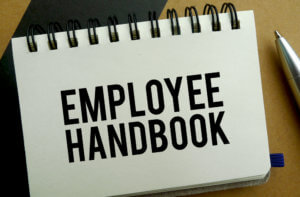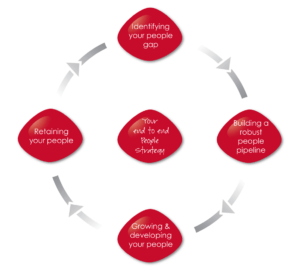
Irrespective of your business, industry or size, a key aspect of your employee engagement and retention should be your people feeling like they are growing and developing.
If your people are able to link their personal and professional growth to the organisation, they are more likely to stay and participate at a higher level through increased commitment and loyalty.
FACT.
Let me share with you a hypothetical example which describes a common and real scenario in businesses all around the world today, and worryingly, for many it may be considered the norm.
‘John doesn’t feel the same about work anymore. Something’s changed. He used to approach it with commitment and drive, happily doing extra hours because he believed in where they were going and what they were doing as an organisation. They were in this together. But now things are different. A new management structure has made him voiceless and depressed. Decisions he was once part of are now made behind his back. And the result? Discretionary effort; going the extra mile; working beyond contractual obligation have been withdrawn. Emotionally, John has checked out. The goodwill has gone. He takes more sick days now.’
You may not even realise, but the chances are high that within your own business you may have at least one John, perhaps even more.

One of the greatest assets of your business walks out the door every night. What are you doing to get them to return next day inspired, motivated, and enthused to be the best they can be?
Growing and developing is a two-way partnership between the individual and the business. I think of it as a ‘soft contract’, the rules of engagement for how both parties can achieve maximum value from the relationship.
And within this soft contract are three core principles, which underpin the growth and development of your people;
#1 An individual’s never-ending thirst for learning
I believe every person owns their own performance through the conscious choices they make and one of those is undoubtedly having an attitude of constant curiosity for learning.
A great scene in a movie called The Blind Side, starring Sandra Bullock, reinforces the importance of this point. In the scene, she is dropping her birth son and adopted son at the school gates, and her parting words to them both are: ‘Have fun and learn something new today’.
Now, while the ‘have fun . . .’ part is important, it’s the second part that really struck me as central to success: ‘. . . learn something new today’.
Sometimes, particularly as adults, we slip into the trap of complacency, operating in a state of unconsciousness where it feels like we are just going through the motions.
But the day you stop LEARNING is the day you stop EARNING!
It’s the day you slip into a place that I call ‘the groove or the grave’ – no man’s land. It’s the day you accept your place in the world of mediocrity where just enough is good enough. It’s the day when you lose your edge and stop being your best self.
In an increasingly competitive world, there is no such thing as standing still. All around you, people are actively moving forward and standing still really means you’re falling behind.

As part of a leader-leader culture, each individual in the organisation must take ownership for his or her development and be their own performance coach. It fosters a learning culture where every individual has a relentless thirst for learning smarter, identifying better ways of doing things, and creating a never-ending pursuit of excellence.
What if you and every single one of your people at the end of each working day asked a simple question: ‘What have I learnt new today which is going to help me to be even better tomorrow than I was today?’
#2 The singular most important question for unlocking people potential
One of my clients is a large publisher of UK regional newspapers. One day, an editor walked into the CEO’s office and shared his frustration about a non-performing team member. The CEO asked how long they had been underperforming and the editor replied: ‘Oh, at least ten years’.
She asked him what he had done to inform the individual that they weren’t performing, what evidence he could show of performance conversations, and what training gaps had been identified to improve their performance.
The answer: none.
Whilst you could question whether the individual had taken ownership of their own performance, they had undoubtedly been let down by their leader and the organisation.
This scenario happens all too often.
I am often saddened when I read exit interviews of employees who have left a business with a high rate of people attrition. Comments often include: ‘If only I had been told that I was underperforming 12 or 18 months ago, I could have done something about it.’

The newspaper publisher may sound like it’s misfiring, but actually, the same conversation could have taken place at any organisation. On the whole, organisations are poor at setting their people up for success.
Changing that hinges on asking the singular most important question for unlocking people potential:
Do your people know what world class looks like, feels like and acts like from a behavioural and numerical/ KPI perspective?
Now pause for a moment.
If you have 1, 10, 100, 1,000, or 10,000 people, and you asked that question right now, how do you think they would answer?
I guarantee you would hear a broad range of ideas, rather than a clear and unified response.
That’s a serious issue.
If you haven’t created absolute clarity about what the expectations are for their role, explained to them what great looks like, and set them up for success, it’s almost predictable that you and your people will be working to different models and interpretations of what great looks like.
Aligning perception and reality so there is only ‘one version of the truth’ is critical to unlocking and harnessing the power of your people asset. More importantly, asking this question should not be an annual tick box exercise. Roles evolve, and therefore regular check-in and clarity management is essential.
#3 Empowerment without enablement is a train crash!
I wish I had a pound for every time I’d coached a leader or manager and heard them complain that despite their efforts to empower their people, they’re just not seeing the results they were expecting.
The challenge is that empowerment is an overused word that means little without enablement. The one without the other is simply a train crash.
If we really want to set people up for success, and truly unlock their potential and deliver excellence within their role they need to be enabled with the;
Mindset – the attitude, determination, and will
Skillset – the specific technical or soft skills to excel
Toolset – the tools to do their specific job

Delivering these key components of enablement begins with a learning and development plan personalised for each employee.
Individualisation of learning and development needs is not a new idea, but it is still a fairly uncommon one.
Often training is created to serve the majority of the needs of those carrying out a general role, rather than catering for the individual needs of each unique employee. Although there is some efficiency in the traditional way of thinking, there is magic in making learning and development suit the individual.
And these learning and development plans should sit right at the heart of a robust performance development review system.
A common mistake in many organisations is the emphasis of performance conversations taking place solely in the formal yearly or half yearly one-to-one. If you embed the culture of live, in-the-moment feedback, the annual and half yearly performance reviews should be the fastest and easiest conversations you have all year.
Why?
Because through regular inspirational and developmental feedback, perception and reality on performance have constantly been calibrated throughout the year.
Think about it for a moment.
If you’re a parent how much time have you spent, and how much are you still spending, on conversations about what is acceptable and what isn’t?
Why do you put so much emphasis on this?
Because you know consistency is everything and live, in-the-moment feedback is the only message your child understands. You can’t just compile the feedback for an ‘annual performance conversation’, or even a daily one for that matter!

Live in-the-moment, real time inspirational and developmental feedback is the only way and regular performance conversations in business should be no different.
A robust performance review process is essential.
First, employment law today favours the employee over the employer and if you do not have an audit trail of documented regular performance conversations then you will leave your organisation exposed.
Second, performance reviews should be a positive experience.
People should look forward to them as a way of capturing the great performance they have delivered and the contribution they have made to the broader organisational goals.
Third, and finally, you must keep score.
From an employee perspective, it allows the individual to benchmark their performance against their peer group. From the perspective of the company, which expects to pay individual bonuses or company profit share, without a robust performance review system, it becomes hard to decide which payments should and should not be made.
The success of your business is hardwired to the productivity of your people, and since that calls for them to contribute their whole self what are you doing to get them to return next day inspired, motivated, and enthused to be the best they can be?
A compelling end-to-end people strategy is not just a nice to have in your business growth strategy, it is a must have.

Check out my other blog posts on this very topic…
Are people a cost or an investment in your business?

